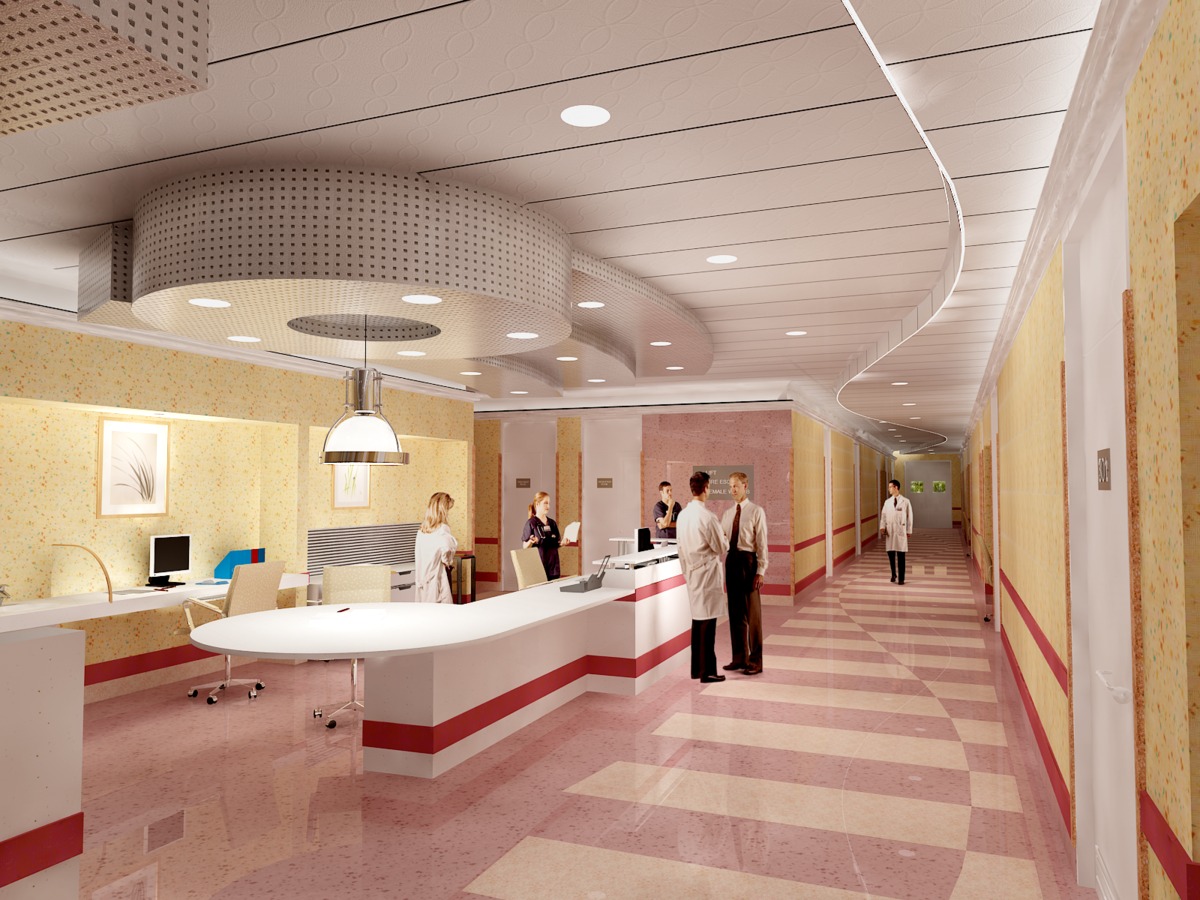
AI in healthcare in India: Top hospitals using AI
In a country where healthcare accessibility and quality often vary, how can Artificial Intelligence (AI) produce a real impact? AI in healthcare in India now changes how hospitals approach patient care, diagnostics, and treatment plans. As India faces challenges such as a shortage of medical professionals and a strained healthcare system, AI provides a promising answer to narrow these gaps. Hospitals nationwide already adopted AI to improve diagnostic accuracy, streamline processes, and deliver more personalized care. This article examines how top hospitals in India integrate AI into their work and its effect on the healthcare sector and patient outcomes.
How is AI used in healthcare in India
While AI adoption is still evolving, its applications already span across diagnostics, hospital operations, and patient care. From decision-support systems to automated patient engagement, AI-driven solutions have the potential to make medical services faster, more accurate, and more accessible. These applications are already helping hospitals bridge gaps in healthcare availability.
Disease detection and diagnostics
AI in healthcare is revolutionizing disease detection, particularly in areas such as cancer, heart disease, and diabetes. Machine learning (ML) algorithms are being used to analyze medical images like X-rays, CT scans, and MRIs, which help doctors detect conditions at earlier, more treatable stages, and contribute to better electronic health record integration for patient data management.
For example, Apollo Hospitals utilizes AI to improve stroke diagnosis, reducing the time it takes to diagnose a stroke from 60 minutes to just two minutes. Similarly, NIRAMAI Health Analytix has developed AI-based breast cancer screening technology that uses thermal imaging to detect tumors five times smaller than those identified through clinical exams.
Process Optimization
Artificial intelligence in healthcare can help providers improve how they manage tasks and provide care. This can lead to better performance in hospitals. In many Indian hospitals, AI systems manage bed occupancy, predict patient flow, and optimize insurance claims processing. This helps hospitals better allocate resources, reduce wait times, and lower costs. For instance, AI applications predict “patient churn” (the turnover of hospital beds), allowing better bed management in hospitals across India.
Personalized Treatment
AI plays a key role in personalized medicine, as it changes treatments according to individual patients based on their unique data. Hospitals in India are collaborating with tech companies to use AI to create custom treatment plans. For example, IBM Watson for Oncology is being used by Manipal Hospitals to help doctors discover personalized cancer care options. This platform uses AI to analyze a lot of clinical data and recommends the best treatment plans. This helps improve patient outcomes and reduces the trial-and-error process found in traditional care.
AI in medical research and drug development
Indian healthcare institutions and biotech companies are using AI to accelerate drug discovery and improve clinical research. Deep learning algorithms analyze complex biological data to identify potential treatments faster than traditional methods. AI-assisted research speeds up drug development as it can identify promising compounds for testing. AI-driven molecular analysis helps create personalized medicine by customizing treatments based on individual genetic profiles.
The adoption of AI in healthcare in India continues to expand, with hospitals integrating AI to improve diagnosis, streamline hospital operations, and offer better patient care. As AI technology advances, its role in shaping India’s healthcare landscape will become even more prominent, driving better outcomes across hospitals nationwide, especially through the development of AI medical records summary systems that enhance patient data accessibility and management.
Top 7 hospitals in India that use AI
India’s top hospitals now integrate AI into their healthcare systems to improve diagnostic accuracy and streamline operations and patient care. With AI-powered tools, hospitals detect diseases earlier, personalize treatment plans, and optimize resource management. These advances are very important in a country where healthcare demand often outstrips available resources and access to specialized care remains a challenge in rural areas. The following hospitals stand out for their adoption of AI. They use technology to improve healthcare outcomes and deliver world-class medical services in their respective fields.
1. Apollo hospitals
Location: Nationwide, with major hospitals in Delhi, Hyderabad, Bangalore, Chennai, and Mumbai.
Apollo Hospitals is one of India’s largest and most recognized healthcare chains, with a reputation for providing high-quality medical services across a wide spectrum of specialties. Established in 1983, it operates over 70 hospitals across India. It’s known for its excellence in medical research and clinical outcomes, especially in areas like cardiology, neurology, and cancer care.
Apollo Hospitals has integrated AI into its stroke management system, which enables doctors to diagnose strokes more rapidly and accurately. The AI system processes brain scans to assess stroke severity in real-time, cutting diagnosis time from 60 minutes to just 2 minutes. The hospital also uses AI to improve predictive analytics in cardiology and provide personalized treatment plans based on patient data.
2. Fortis Healthcare
Location: Nationwide, with major hospitals in Delhi, Gurgaon, Mumbai, and Bangalore.
Fortis Healthcare operates 30 hospitals across India, focusing on specialties such as cardiology, nephrology, oncology, and orthopedics. With its roots in the establishment of the Fortis Escorts Heart Institute in 1996, Fortis is widely recognized for affordable, high-quality medical care. The hospital group has earned accolades for its world-class emergency services, critical care units, and transplant facilities.
Fortis Healthcare is well-regarded for its cardiology department, with advanced diagnostic and surgical procedures such as angioplasty, bypass surgery, and valve replacement. The hospital also offers specialized services in neurology, orthopedics, and fertility treatments, alongside trauma and emergency care. AI systems are being used to analyze medical imaging, such as CT scans and MRIs, to support oncologists in making more accurate and timely diagnoses. Fortis is also working on AI-driven personalized treatment plans to improve patient outcomes and minimize treatment costs.
3. Tata Memorial Hospital
Location: Mumbai, Maharashtra
Tata Memorial Hospital is a leading cancer center in India, that provides excellent cancer care, including chemotherapy, radiation therapy, and palliative care. Founded in 1941, Tata Memorial is dedicated to improving cancer treatment through research, education, and clinical services. It is recognized as one of the top oncology centers in India, offering both public and private treatment options.
The hospital is using AI for predictive analytics and optimization of the treatment strategies for cancer patients. AI models assist oncologists in analyzing medical data, helping them create more advanced and personalized treatment plans. In addition to AI, Tata Memorial offers treatments in cancer research, bone marrow transplants, and radiation oncology.
4. Manipal Hospitals
Location: Nationwide, with major hospitals in Bangalore, Delhi, Jaipur, and Goa.
Manipal Hospitals is one of the most respected healthcare providers in India, operating 29 hospitals across the country. Known for its expertise in cardiology, urology, neurology, and orthopedics, Manipal has earned a strong reputation for its world-class care. The hospital is also recognized for its excellence in minimally invasive surgeries and organ transplant programs.
Manipal Hospitals has partnered with IBM Watson for Oncology, using AI to provide personalized cancer treatment plans. The AI system helps oncologists analyze patient data, medical histories, and the latest research to make more informed decisions about cancer care. In addition to AI, Manipal offers treatments for kidney diseases, spinal disorders, and diabetes.
5. Narayana Health
Location: Nationwide, with major hospitals in Bangalore, Kolkata, and Jaipur.
Founded by Dr. Devi Shetty, Narayana Health has grown into one of India’s most affordable yet world-class healthcare providers. Narayana operates 21 hospitals and offers specialized treatments in cardiology, pediatrics, neurology, and nephrology. It’s famous for performing high-volume cardiac surgeries at lower costs, Narayana Health has earned a reputation for making advanced healthcare accessible to a wider population.
Narayana Health is collaborating with Google to develop AI-powered imaging tools for diagnosing lung diseases and cardiac conditions. The use of AI helps doctors detect heart conditions earlier, improving treatment outcomes. Beyond AI, Narayana Health has expertise in heart surgeries, kidney transplants, and pediatric care.
6. Medanta – The Medicity
Location: Gurgaon, Haryana
Medanta – The Medicity is one of India’s most renowned multispecialty hospitals with a wide range of services in cardiology, oncology, neurology, and orthopedics. With state-of-the-art infrastructure and world-class medical technology, Medanta has earned recognition for its expertise in organ transplants, including liver, heart, and kidney transplants.
Medanta is using AI-driven tools in radiology and pathology to enhance the accuracy of diagnoses, particularly for complex diseases. By integrating AI into clinical decision-making, the hospital is improving diagnostic timelines and enabling more precise treatments. In addition to AI, Medanta provides cutting-edge services in surgery, endocrinology, and emergency care.
7. Aravind Eye Hospital
Location: Madurai, Tamil Nadu
Aravind Eye Hospital is the largest eye care network in India, known for providing affordable, high-quality eye care services. The hospital specializes in cataract surgeries, glaucoma treatments, and retinal care. Aravind’s model is built around making quality eye care accessible to rural populations, with over 40 centers across India.
Aravind Eye Hospital collaborates with Google to implement AI for the early detection of diabetic retinopathy. The AI-powered system helps detect retinal diseases at an early stage, improving patient outcomes by facilitating early treatment. Along with AI, Aravind offers other eye care services like cataract surgeries, glaucoma treatments, and pediatric ophthalmology.
These hospitals are leaders in healthcare innovation and are also making strides in integrating AI to improve diagnostic accuracy, and treatment plans, and streamline hospital operations. Through these efforts, they continue to raise the standard of healthcare in India and provide better, more accessible care for patients across the country.
The future of AI in Indian healthcare
With the promising future of AI in healthcare India holds immense potential to transform the sector further and address longstanding challenges. With advancements in machine learning, deep learning, and natural language processing, AI is expected to play an even greater role in disease detection, personalized treatment, and healthcare management. As technology continues to evolve, AI will likely enable more sophisticated diagnostic tools, leading to earlier detection of conditions like cancer and heart disease.
Furthermore, AI-driven platforms will improve accessibility, particularly in rural areas, by providing virtual consultations, remote monitoring, and telemedicine services. AI can also help optimize healthcare resources, reduce inefficiencies and lower costs. With the government’s growing focus on digital health infrastructure, AI is set to become an integral part of the Indian healthcare ecosystem, boosting the quality of care and making healthcare more accessible and affordable for all.
Conclusion
The incorporation of AI in healthcare in India has a great effect on patient care, diagnosis, and hospital operations. As AI advances, its capacity to solve resource constraints and limited access in rural areas increases. When more hospitals adopt AI-driven tools, India’s healthcare system stands on the brink of a transformative shift that benefits both patients and medical professionals.
FAQ
While the adoption of AI in Indian hospitals can involve great initial investment, the long-term benefits like reduced diagnostic errors, optimized resource management, and better patient outcomes, can offset these costs. Moreover, AI-driven systems are becoming more cost-effective with increased development and wider implementation, which helps hospitals manage their expenses.
The Indian government has initiated policies like the National Digital Health Blueprint (NDHB) and the National Health Stack to establish a framework for AI in healthcare. These initiatives aim to create an advanced infrastructure for digital health, facilitating AI adoption while addressing challenges in data privacy and security. However, clear regulations on AI-driven medical decision-making, data privacy, and accountability are still developing. Policymakers are focused on creating guidelines that balance innovation with ethical and medical standards.
Companies like Google, Microsoft, and IBM have partnered with Indian hospitals to develop AI-driven medical tools. For example, Google collaborates with Aravind Eye Hospital for AI-based diabetic retinopathy detection, while IBM Watson supports Manipal Hospitals in cancer treatment planning. These partnerships help bring the latest AI solutions to Indian healthcare institutions.

Hospital Monitoring Software Development: Secret Features And Also Perks
Over the last couple of years, the demand for convenient medical solutions has increased. In combination with the rapid digitalization of the sector, even more software application systems and tools appear in clinical establishments.
Software remedies are developed to automate everyday operations, manage bills and paperwork, as well as supply, and generally decrease the stress on medical professionals.
Among the most extensive all-in-one systems is the healthcare facility administration software system; in this write-up, we will explore SaaS-based HMS and its core benefits and attributes.
What is a Health Center Administration System?
A health centre monitoring system is an independent or cloud-based internet medical management facility that captures and incorporates all divisions’ information to automate the inner tasks.
At its core, HMS intends to simplify the process for clinicians, reduce management expenses, diminish errors, and supply a far better client experience. Nonetheless, it encompasses a wide array of functions, as the system takes care of every department or branch of the health centre.
It accumulates medical professionals, clients, laboratory outcomes, clinical products, appointments, costs and insurance, and records.
Benefits of Hospital Monitoring Software
1. Decreased prices and also work
The reliable distribution of resources is essential to great care as well as the overall well-being of the organization. A well-managed workload and effective budgeting, in particular, allow for optimum planning of healthcare facility performance.
Due to software programs with considerable scheduling capacities, subject-based alternatives can enhance doctor-patient communication. In addition, keeping an eye on scientific, personal, and financial information is feasible if all documents and transactions are maintained in the system.
2. Enhanced client experience
Raising hospital management software applications’ uniformity, scalability, and dependability improves client care and experience, making a health care method’s procedures significantly more effective.
Proper data management can prevent such healthcare issues as delayed taking care of people that require prompt medical focus. Therefore, healthcare facility monitoring software would undoubtedly enhance the performance and allure of healthcare solutions to their vital audience: physicians and people.
3. Improved operations
A system that can care for all types of clinical data, stock, results, and coverage can considerably increase a medical facility’s effectiveness. In addition, the software program filters information automatically, causing faster available treatments and removing time-consuming, recurring jobs that humans need to embark on.
Human mistakes are the 2nd most prominent source of medical care mismanagement, and the hospital monitoring system significantly decreases the possibility of this occurring. For example, there is much less probability of replication, document typos, or other mistakes with enhanced information administration.
What kinds of information does the health centre administration system process?
Aside from information types, hospital monitoring software has separate systems that care for various job markets. The primary system types consist of:
Functional and tactical systems
One of the most prevalent techniques for categorizing medical information is operational systems. Its assimilation enables you to send details hierarchically, with these systems managing different sorts of clinical understanding at each level.
Moreover, it enables reliable and quick information operation, along with detecting system abnormalities.
Administrative systems
This HMS module is required for all healthcare facilities and is responsible for providing personal details in the form of records and data.
When the client is released, as well as following medical assistance (to provide specifics), details are taken into the system and also sent as a report to the Division of Health and Wellness (DOH).
The scientific system, which consists of digital patient records (EPRs), is built on the management system because administrative details are attached to various scientific systems.
When producing such a system, remember that it carries out worse than options such as subject-based ones owing to the higher possibility of information duplication, which influences system performance, disk space optimization, and the nature of data selection storage space.
Invoicing systems
Payment systems supervise tracking and taking care of the hospital’s finances. The tagging of different results from medical care management systems with the associated prices allows for the surveillance of clients, setting you back.
Most of the set you back are done by analysing the previous year’s expenditure circulation. The ability to charge and control payment/non-payment is an essential attribute of such systems. Thus, billing systems are necessary for ideal financial efficiency in medical facilities.
Main features of Hospital Monitoring Software
Research laboratory monitoring
Among the HMS attributes are the capability to handle test results and person information and connect with other lab systems to enhance workflow efficiency and information precision and add worth to the general person therapy cycle.
Results administration can consist of monitoring, quality assurance, reporting, and various other activities. The HMS system incorporates research laboratory systems, collects needed information, and types it in the design, layering with added patient details if required.
Digital medical records (EMR) monitoring
EMR software program is a consolidated information hub that stores all vital personal info, such as health and wellness documents, goes to, vaccines, medications, doctor’s notes, and so forth.
Who added new and upgraded attributes and functions as health care remedies developed, but the core set stayed the same.
However, with the global pandemic and enhanced digitization of the health care sector, streamlined, incorporated, protected, and high-performing EHR and invoicing software programs will certainly be required.
Mobile application
The wellness technology sector is swiftly expanding, with a recognizable boost in patient-targeted applications and products. Because of this, medical care mobile apps are a crucial component of the health centre’s life process.
A well-integrated application may bridge the gap between the individual and modern technology, dramatically enhancing the consumer experience.
In a medical care setup, the advantages of straightforward and practical application design extend beyond the evidence and assist in quicker and extra efficient illness treatment.









